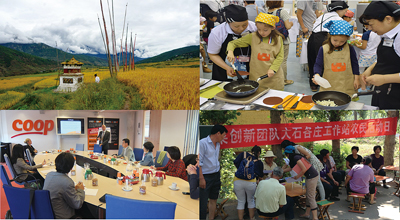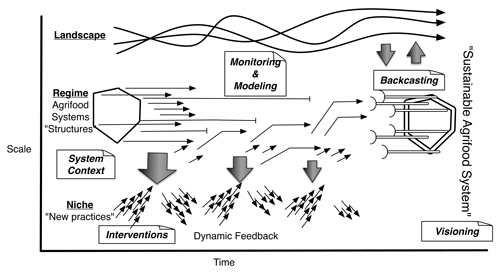Lifeworlds of Sustainable Food Consumption and Production: Agrifood Systems in Transition
Steven R. MCGREEVY, RIHN
RIHNArea : Japan, China, Thailand, Bhutan
- FS①
- FS②
- FS③
- PR①
2015
How can we create ecologically and socially sustainable agrifood systems? Taking a bottom-up, action research approach, this project seeks to initiate sustainable agrifood transition through the creation of new communities of social practice and collective action with stakeholders ranged along global and local food chains, at locations in Japan, China, Thailand, and Bhutan. Novel methodological approaches including participatory foodshed mapping and social practice backcasting will be employed, and consumer-oriented tools will be developed (food LCA app, local eco-brand).
* This project has been converted from a state of FS in mid-2015.

Photo Upper left- Bhutanese agricultural landscape; Upper right- Children's food literacy education (Japan); Lower left- Consumer food cooperative (Holland); Lower right- Farmers and researcher workshop (China)

Figure Research activities as part of a transition process (adapted from Geels and Schot 2007). Niche-scaled practices interact with higher level techno-political structures, established cultures, and configurations of power, and are constrained, enabled, and evolve over time. Durable practices have the potential to reconfigure prevailing regimes (such as political, technological, or market orientations) as well as slow-changing social and cultural institutions and values.
